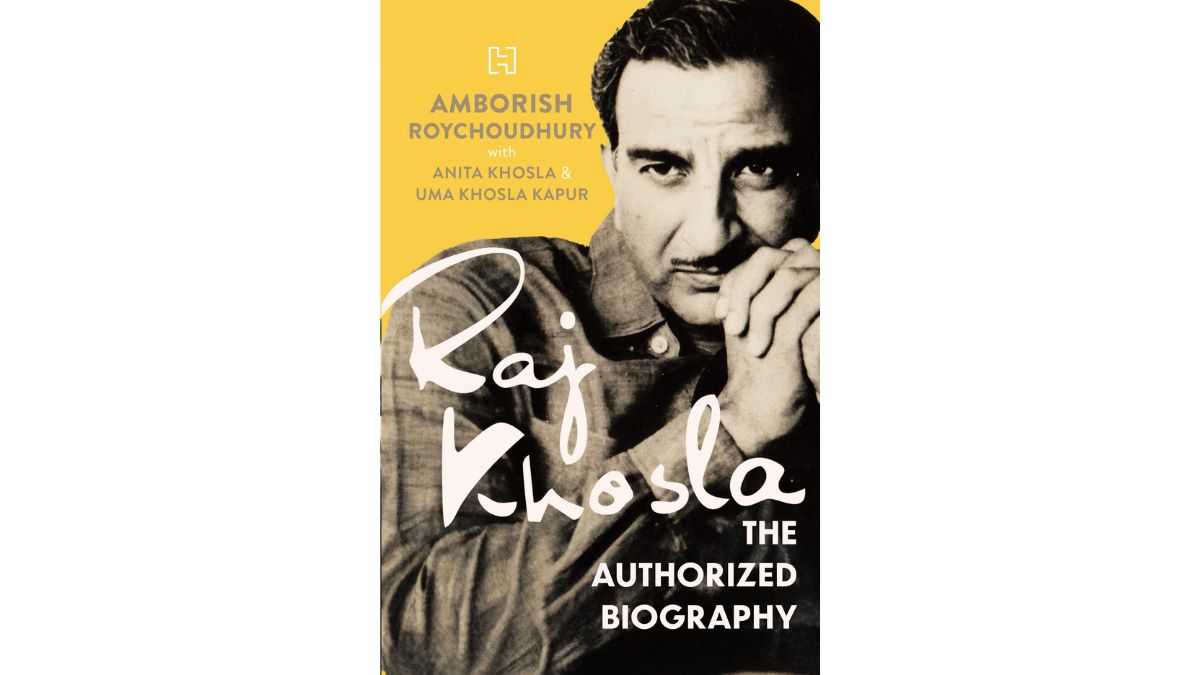'Raj Khosla: The Authorized Biography' book review: Icon overshadowed by his film music gets the recognition he deserves

When film historian Amborish Roychoudhury told his friends he was writing a book on Raj Khosla, few showed any sign of recognition. Yet later, when he posted a collage of songs from Khosla’s films, his inbox lit up with messages like:
“Wow! All these songs are from his films?”
“I didn’t know all of these were by one guy!”
“He needs to be celebrated.”
The songs in question are some of the most iconic in Hindi cinema—‘Jhumka Gira Re’, ‘Bindiya Chamkegi’, ‘Achha Ji Main Haari’, ‘Yeh Hai Bombay Meri Jaan’, and ‘Lag Jaa Gale’.
These songs continue to be celebrated to this day, so much so that when Lata Mangeshkar passed away in 2022, most tributes to her featured the song 'Lag Jaa Gale'.
Khosla's filmography also deserves to be celebrated—and that's precisely what Roychoudhury does in his latest, 'Raj Khosla: The Authorised Biography', which he has written with Khosla's daughters Anita Khosla and Uma Khosla Kapur.
"How on earth can the same director have made a 'C.I.D.' and a 'Do Raaste'? The same guy, without breaking a sweat, created 'Main Tulsi Tere Aangan Ki' and 'Dostana' within a span of two years," Roychoudhury writes in the book's intro.
"Such disparate kinds of films can only come from the stable of a director who is passionately in love with his work, and with cinema," he adds as he maps the journey of Khosla, who made everything from crime thrillers to family dramas and romances.
Writing about a figure who was active during the 1960s to 80s—about whom not much material is available and whose contemporaries have mostly died—is an impressive feat that Roychoudhury pulls that off remarkably well.
The book is well-researched, and he keeps the language simple, which makes it all the more engrossing to read. At the same time, he organically weaves in several figures and anecdotes, which add to the flavour of the narrative.
The parts where he describes Khosla's relationship with his mentor, Guru Dutt, are as interesting as his supposed tiff with Waheeda Rehman: both headstrong artists who locked horns on more than one occasion.
"'Nayi ladki ho, itni behes karti ho (You're new here, and you argue so much),'" Khosla once told Rehman.
Then there are parts on the maker's evolving filmography, which flow smoothly as the author writes about Khosla's leading man Dev Anand, his admiration for Hollywood classics, and his depiction of women (who were played by legendary actors from Madhubala and Rehman to Sadhana and Suchitra Sen, among others).
However, the parts that stand out—like Khosla's filmography—are the songs.
For example, on one such song, Roychoudhury writes: "This was a special song, composed by Burman Senior. Asha Bhosle reminisced, laughing: 'When I used those expressions while singing ‘Achha Ji Main Haari’ ... Dev Anand and the rest of the team were jumping with joy. We could see through the glass window of the recording room. They were jumping, going all crazy."
Similarly, the song 'Jhumka Gira Re' had a personal connect. This was because "one of the abiding legacies that Raj's grandmother left him was a love for folk songs", he writes, adding that "one of the songs that she hummed was an old tune that went 'Jumka gira re/Bareilley ke bazar mein'."
Khosla's songs have been iconic, and so have many of his films. However, what had been missing was the maker being recognised for them. Roychoudhury makes an excellent effort at that with 'Raj Khosla: The Authorised Biography'.
Books Review